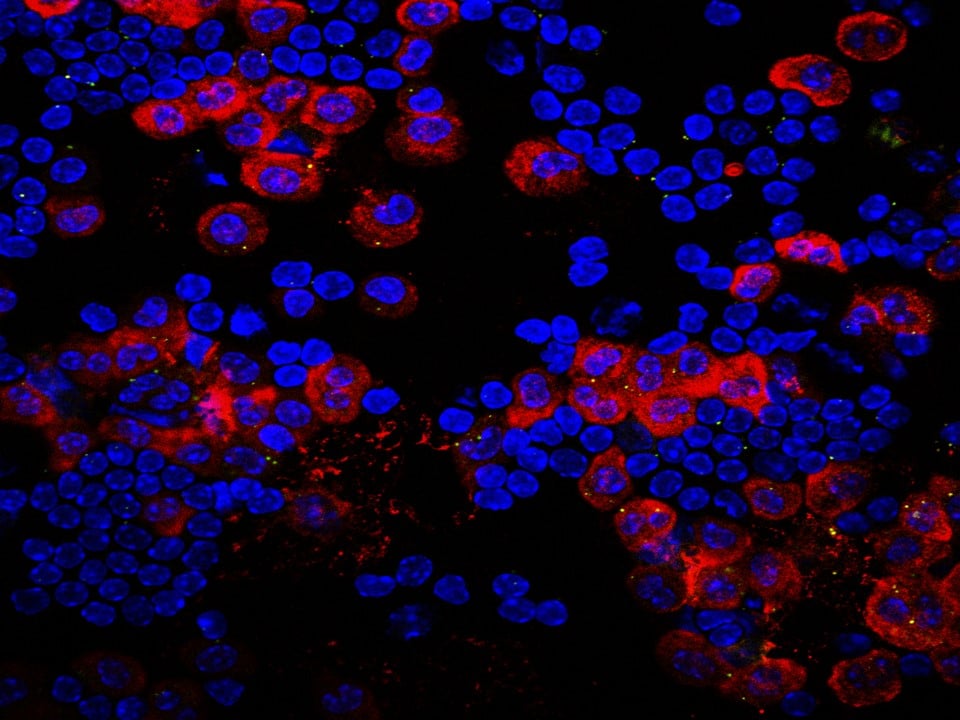Research

Type 2 Diabetes Research
Type 2 diabetes is a global disease affecting 30 million Americans and 500 million people worldwide. Another 100 million Americans have pre-diabetes that may progress to type 2 diabetes unless lifestyle interventions are implemented. For over three decades, Dr. Kim’s research, funded by the National Institutes of Health (NIH), has focused on insulin resistance, a critical early event in type 2 diabetes. Using elegant metabolic procedures and molecular approaches in transgenic mouse models, his research investigates the role of inflammation in insulin resistance and altered glucose and lipid metabolism. By collaborating with leading academic and industry investigators, Dr. Kim’s translational research further explores potential therapeutic targets for treating type 2 diabetes in humans.
Obesity Research
The obesity epidemic is a global health crisis with more than 1 billion people worldwide living with obesity, which is a major cause of type 2 diabetes, metabolic liver disease, and cardiovascular diseases. There are biological, environmental, and socioeconomic factors contributing to obesity prevalence. Our body weight is based on a simple law of thermodynamics (energy-in vs. energy-out) but regulated by a complex network of signaling pathways involving the neuroendocrine system and gut microbiome. As a leading expert in metabolism, Dr. Kim’s research focuses on gut peptides (GI hormones) and microbiome and their regulation of feeding behavior and energy expenditure. Another interesting topic focuses on the immune regulation of energy balance. Losing 10% of body weight is well known to prevent or delay the onset of type 2 diabetes, and his research aims to identify new paths to improving energy balance and preventing obesity-associated human diseases.
Metabolic Liver Disease Research
Metabolic dysfunction-associated steatotic liver disease (MASLD) encompasses fatty liver, where lipid deposition accounts for more than 5% of the liver’s weight, and metabolic dysfunction-associated steatohepatitis (MASH) with the onset of inflammation and fibrosis, leading to cirrhosis and liver failure. MASLD is an emerging public health issue affecting 3 out of 4 individuals with obesity and more than 50% of subjects with type 2 diabetes. With a recently awarded NIH grant (1R01-DK133772) from the National Institute of Diabetes and Digestive and Kidney Diseases, Dr. Kim’s research focuses on the role of macrophage IFNg signaling and IL-12 as key mediators of intrahepatic crosstalk between immune cells and hepatocytes in obesity-mediated insulin resistance and MASH. Using sophisticated metabolic, molecular, and cell-based approaches with adeno-associated viruses, small interfering RNAs, 4D ultrasound, and newly generated transgenic mice, Dr. Kim aims to identify novel therapeutic targets for treating metabolic liver disease in humans.
Alzheimer’s Disease Research
As the 5th leading cause of death among people ages 65 and older, Alzheimer’s disease (AD) is a public health crisis with uncertain etiologies and treatments. Interestingly, insulin resistance, a major characteristic of type 2 diabetes, is a common shared feature in AD and metabolic diseases. Indeed, recent studies have alluded to a possible connection between AD and type 2 diabetes but this connection remains unknown. With a recently awarded NIH grant (1R01-AG085308) from the National Institute on Aging, Dr. Kim’s research focuses on the role of age-associated changes in peripheral metabolism and inflammation in neurodegeneration. Using elegant metabolic, behavioral, molecular, and cell-based approaches with state-of-the-art spatial transcriptomics and 4D ultrasound analysis, and newly generated transgenic mice, Dr. Kim aims to advance our understanding of the etiology and pathogenesis of AD and identify new therapeutic targets to treat Alzheimer’s disease.
Diabetic Heart Disease Research
Heart disease is the most common cause of death in diabetes, and diabetic subjects are 2~4 times more likely to develop cardiovascular diseases. Similar to other metabolic organs, the diabetic heart is characterized by alterations in glucose and lipid metabolism, insulin resistance, and inflammation, possibly as early events that lead to cardiac remodeling and cardiomyopathy. Using novel heart-selective conditional knockout mice and in vivo imaging system, Dr. Kim’s research investigates the effects of nutrient stress on myocardial inflammation and metabolism and cardiac function.